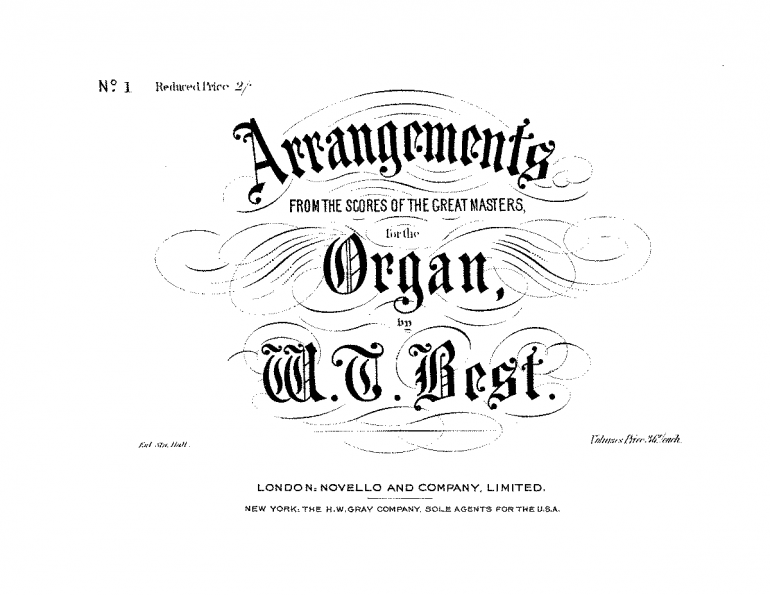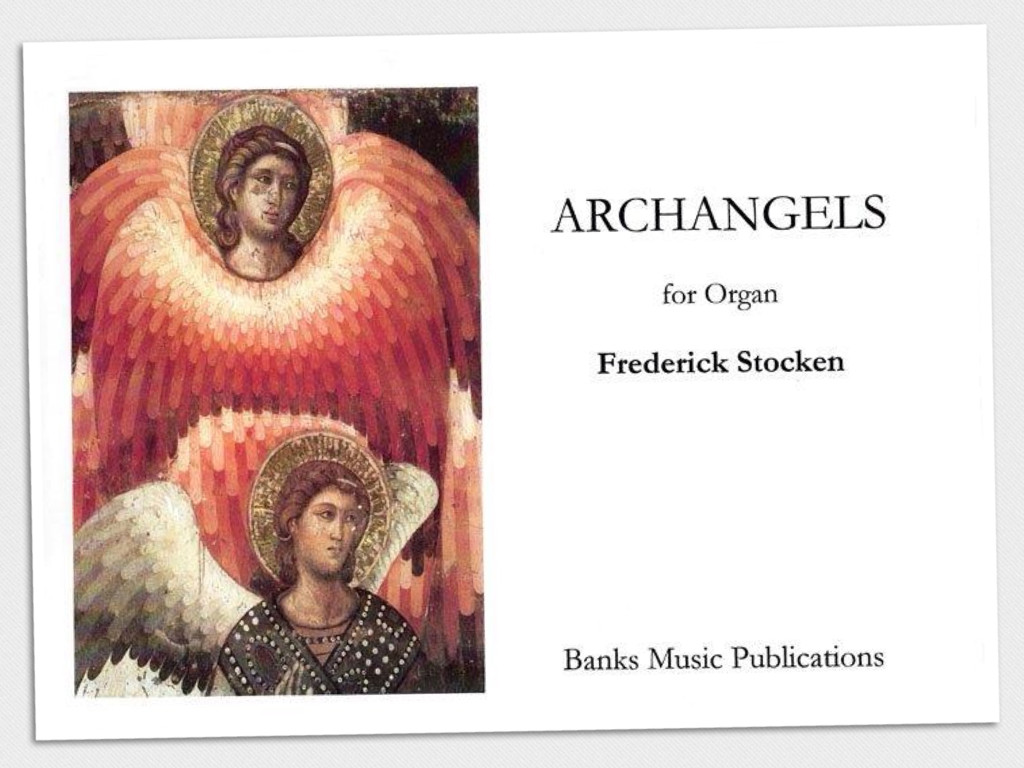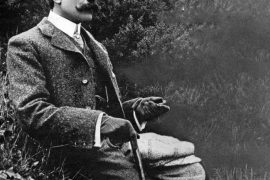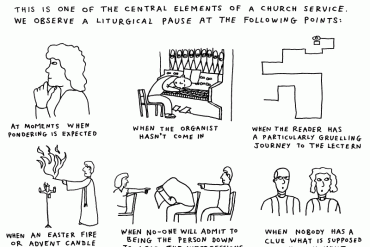They’re back. After nearly a century of being regarded as a bit of a nasty smell in the organ loft, transcriptions are now being taken seriously by serious organ players.
Organists, particularly at the beginner and intermediate level, have always relied on transcriptions of music written for other instruments, and are well-served by the publishers of all those anthologies of Water Music, Nimrod, Berenice, The Wedding March, and so on, arranged for the organ in varying degrees of difficulty. The heyday, though, of the elaborate orchestral transcription was the late 19th and early 20th centuries, driven by demanding performers and the organ builders who tried to please them with inventive additions.* Most notable of these performers was W. T. Best, whose arrangements of symphonic works were a staple of his thrice-weekly recitals at St George’s Hall, Liverpool. Even in his time though, arrangements of orchestral pieces for the organ were a little sniffed at (Sir Walter Parratt famously describing W. T. Best’s orchestral transcriptions as ‘examples of misapplied skill’), and in the even more high-minded twentieth century they fell out of fashion almost completely.
Thomas Trotter at Birmingham Town Hall was one of the first organists in modern times to engage with transcriptions and support the town hall culture as created by Best, and continued by Trotter’s predecessor at Birmingham, George Thalben-Ball. And a few years ago I remember stopping the car, captivated by a broadcast of David Briggs playing his own transcription of Dvorak’s 9th Symphony as as the final voluntary on BBC Radio 3’s normally quite straight-laced Choral Evensong.
Now no respectable organ recital in either town hall or cathedral doesn’t slip a transcription of some kind into the programme. Daniel Hyde began a recent BBC broadcast concert from King’s College Chapel with Lemare’s arrangement of Wagner’s Overture to The Mastersingers, and included Elgar’s The Angel’s Farewell from Gerontius arranged by Brewer in the second half. American organist Nathan Laube included his own transcription of Liszt’s Sonata in B minor, and his own adaption of the Lemare transcription of Wagner’s Overture to Tannhauser in the recital to inaugurate the rebuilt organ at Canterbury Cathedral.
In the 2020 BBC Proms, when Covid restrictions made made fielding a full symphony orchestra impossible, Jonathan Scott performed a solo concert entirely of symphonic transcriptions of works by Rossini, Mascagni, Dukas and Saint-Saëns on the Royal Albert Hall Organ, a perfect instrument for this repertoire. In an interview about the concert for RCO News magazine, Jonathan makes the point that his transcriptions are not simplified arrangements or ‘budget’ versions, but concert versions of great orchestra works which push the instrument and player to the limit, and display aspects of a great organ which are otherwise unheard in strict organ repertoire.
If you’re tempted by the challenge, below are links to scores and resources, and recordings made by several of the organists mentioned above.
Transcription scores
Many of W. T. Best’s (1826-1897) arrangements and transcriptions can be found and downloaded for free from the public domain music library IMSLP: including his Arrangements from the Scores of the Great Masters for the Organ – a whopping 279 pieces in five volumes. The range of music that he transcribed and is available on IMSLP is wide, from Rameau and Handel, through the more obvious Elgar, Tchaikovsky and Liszt, to Stephen Foster: click on the AS ARRANGER tab on his page in IMSLP.
Edwin Lemare’s (1865-1934) original transcriptions can also be found on IMSLP: here for example the Vorspiel und Liebestod from Tristan und Isolde
A similar list can be found of arrangements by Alfred Herbert Brewer (a direct contemporary of Lemare)
George Calkin (1829-1911) transcribed many of Mendelssohn’s orchestral, piano, and concerto works for organ, here
David Briggs offers a range of his own transcriptions for sale on his website
Jonathan Scott’s scores of his entertaining and virtuoso orchestral transcriptions for the organ also can be bought via his website
Michael’s Music Service sells a variety of transcriptions for organ
Transcription recordings
Jonathan Scott has a popular YouTube channel Scott Brothers Duo, with many performances of his transcriptions. Here for example is the Allegretto from Beethoven’s Symphony No.7. on the organ of the Bridgewater Hall in Manchester.
Also on YouTube, David Briggs gives an illustrated lecture to the American Organ Institute on his process of transcribing the symphonies of Mahler for the organ; and here’s the Adagietto from Mahler’s Symphony No.5 recently recorded by David at the organ of the Stephansdom, Vienna.
Olivier Latry inaugurated the Rieger organ at the Philharmonie de Paris with Saint-Saens Danse Macabre
and Gillian Weir plays Ride of the Valkyries, at the Ulster Hall in Belfast.
Thomas Trotter recorded a CD for Hyperion in 1986 with storming arrangements of Wagner, Mendelssohn, Saint-Saens and Prokofiev: listen to extracts, or download for a small charge, on Hyperion’s website.
If you use Spotify, go the Royal College of Organists’ Spotify channel, where there’s a playlist of modern exponents of transcribed orchestral music – including Thomas Trotter, David Briggs, John Kitchen and Reitze Smits. (Also find a link there to a further organ transcriptions playlist curated by Dylan David Shaw).
*Nicholas Thistlethwaite devotes a chapter to nineteenth century innovation in organ construction, driven by organists and composers, in The Making of the Victorian Organ, CUP, 1990
I’m sure you’ve got your favourites – tell us below please!






The first organ transcription I heard was many years ago when Thomas Trotter played Rossini’s William Tell Overture at Wells Cathedral. It woke up some dozing clergy and thundered round the building. Absolutely fabulous.
I can just imagine! Fantastic.